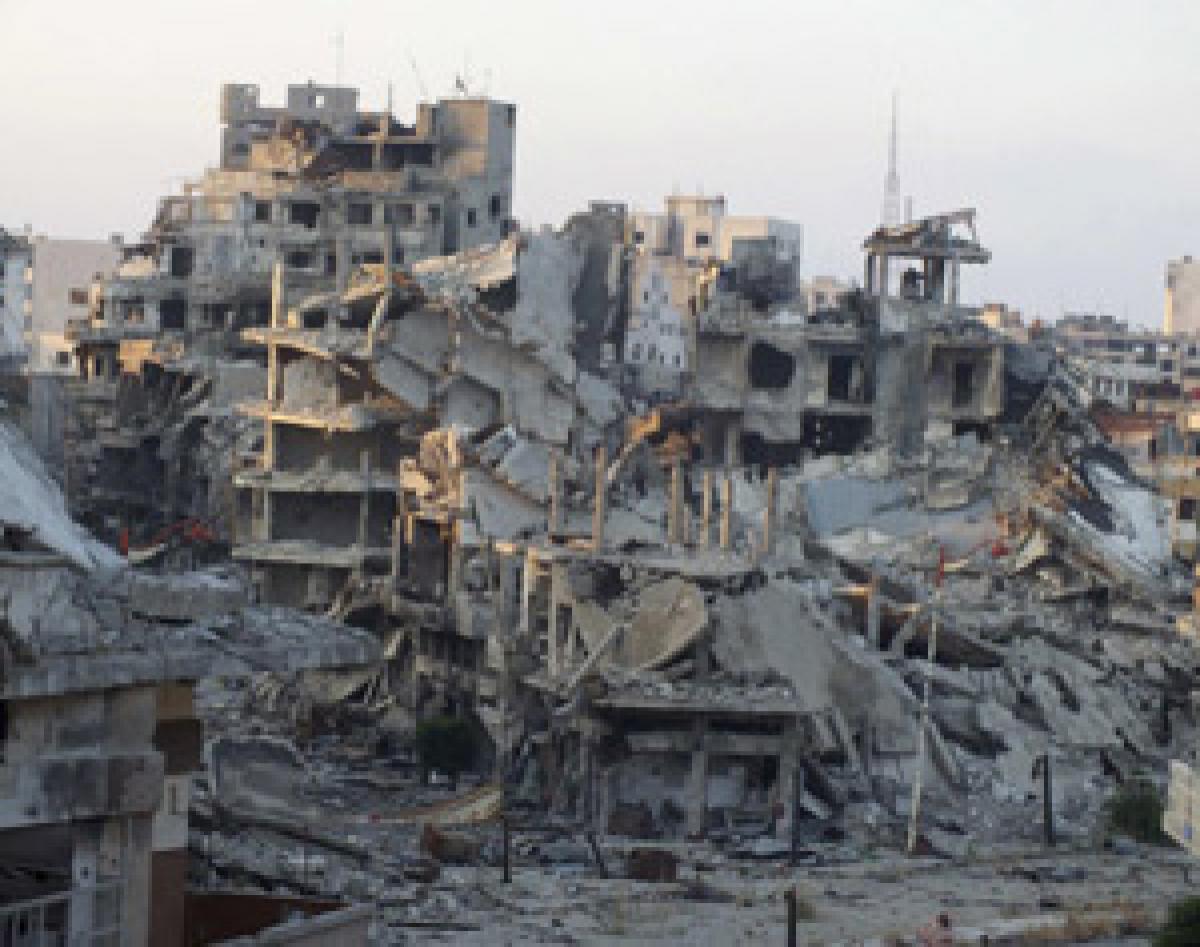Live
- Historic Temple In Sambhal Reopens After 46-Year Closure Following 1978 Riots
- Officials directed to work for deeper reach of guarantees
- Exhilarating ‘Benchmark’ of Venkat Changavalli
- Development activities worth `30 cr launched in Puthalapattu constituency
- Allegations against KTR baseless: BRS leader
- Megastar Chiranjeevi to Visit Allu Arjun’s Residence at 12 PM Today
- Nilima Rane: Trailblazer in Nursing
- Casual yet stylish office outfits for all-day comfort
- TTD to suspend all special darshans from January 10 to 19 amid Vaikuntha dwara darshans
- Naidu pats TDP leaders, cadres for enrolling 73L members
Just In

The escalation of tension between Saudi Arabia and Iran against the backdrop of the Saudi execution of a prominent Shia cleric could negatively rebound on the efforts for establishing a peace process in Syria, analysts here said.
Damascus : The escalation of tension between Saudi Arabia and Iran against the backdrop of the Saudi execution of a prominent Shia cleric could negatively rebound on the efforts for establishing a peace process in Syria, analysts here said.
The tension between Iran and Saudi Arabia was not only confined to the accusatory rhetoric. After the assault on its embassy, Saudi Arabia announced on Sunday that it had cut diplomatic ties with Iran, a move seen by Tehran as a Saudi pretext to sever ties in a diplomatic crisis that could prolong the tension between both regional powerhouses.
The Saudi-backed Bahrain, which has seen an uprising by its majority Shia population and was largely crushed with the help of Riyadh, also followed Saudi Arabia, announcing on Monday severing diplomatic relations with Iran, in another step seen by observers as deepening the sectarian tension in the region. Sudan, another ally of Riyadh, also cut ties with Iran, while the United Arab Emirates (UAE) downgraded its diplomatic representation in the Shia republic.
This tension, which is largely based on old grudges between both powers on the regional sway, could negatively impact the situation in Syria, where the regime of President Bashar al-Assad is hugely supported by Iran, while almost all of the rebel factions were supported by Saudi Arabia and other Gulf States.
Syria's Information Minister Omran al-Zoubi on Saturday said the execution of al-Nimr is "a crime and an assassination of the freedom of speech and human rights." Meanwhile, the rebels' Free Syrian Army (FSA) said in a statement on Monday that it supports the Saudi move in severing ties with Iran.
"With the threats of the Iranian regime to the security and stability in the region by supporting Shia groups in the Arab region including the killing and criminal thugs of Assad and finally fomenting sedition in Saudi Arabia, the decision to cut the ties is a normal and clear response to the aforementioned actions," it said.
"We in the armed revolutionary forces fully support the decision by the Saudi kingdom and back any future step Saudi Arabia may find suitable to preserve its peace and security," said the statement, urging all Arab countries to follow the Saudi lead to cut ties with Iran. Maher Ihsan, a Syrian political analyst, said the new tension was "worrying.”
"It's extremely worrying what happened on the political arena in terms of the severing of the Iranian-Saudi relations, because those powers could seek revenge from one another, and surely they will not engage into a direct war, so where will they settle their score? I am afraid they will avenge one another in other arenas, including Syria," he said.
"Again, this country could be dragged back to the conflict zone, from which it hasn't even been pulled. I am afraid the poor people of Syria will keep paying the bills of others' wars on the Syrian soil," he lamented.
The fear of pulling Syria back was due to the new hope, which was given during recent meetings in Vienna and New York, during which superpowers and regional ones, including Iran and Saudi Arabia, agreed on roadmap to end the Syrian conflict politically.
The roadmap, which will be first implemented with a meeting this month in Geneva between representatives of the Syrian government and the opposition, is designed to establish dialogue, a cease fire and a new government in Syria as a prelude to broader and more inclusive solution.
While the details of the roadmap are yet to be crystalised with proper mechanism, the new regional tension is feared it could affect the renewed efforts to end the long-lasting crisis, which killed over 250,000 people and forced half of the country's 23 million population out of their homes.

© 2024 Hyderabad Media House Limited/The Hans India. All rights reserved. Powered by hocalwire.com







